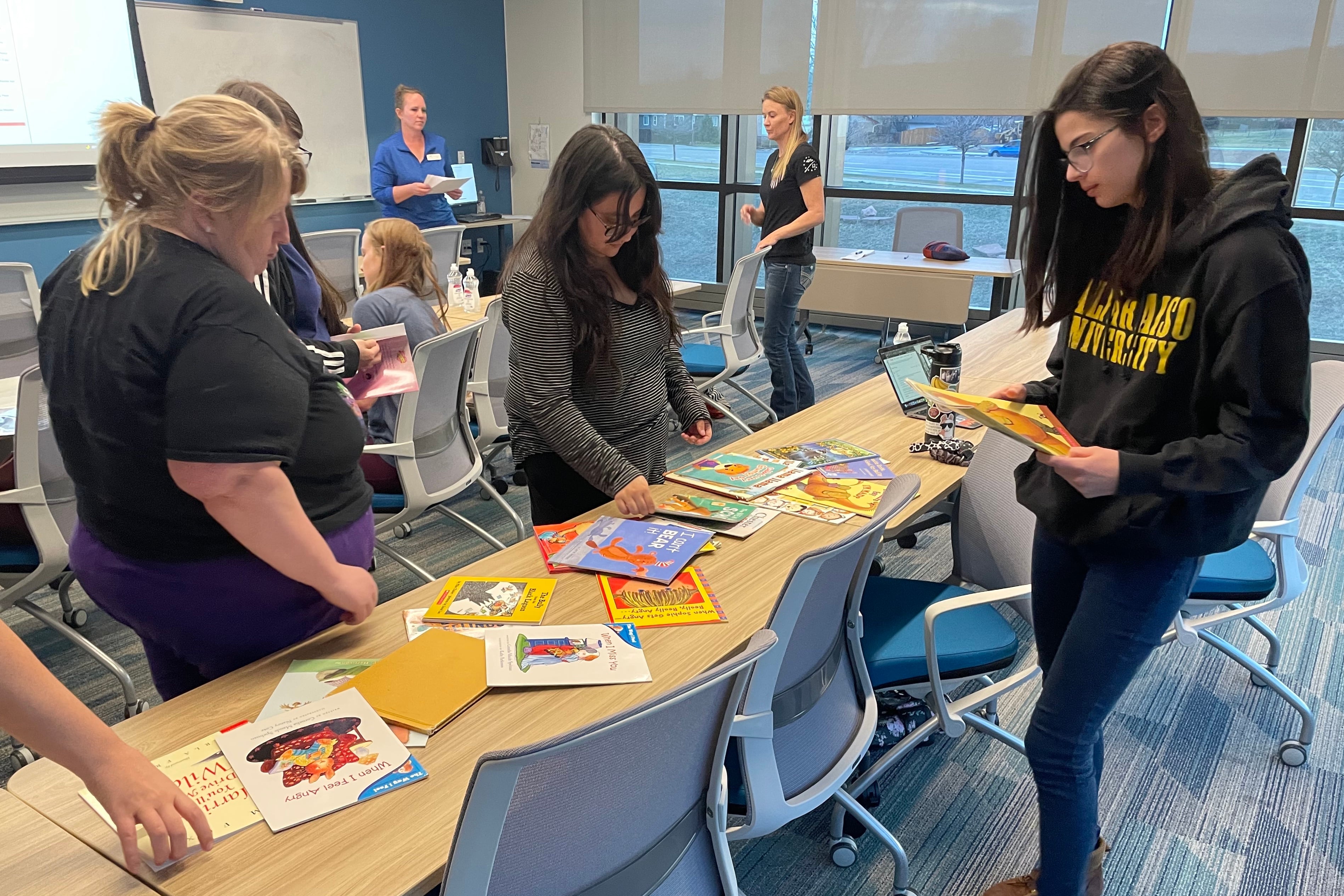Colorado’s community colleges have struggled to enroll older adults since the start of the pandemic, but several schools have been able to work against that trend by helping them with their busy lives.
For example, Pueblo Community College leaders have found ways to cater to and begin to attract older students, or those who aren’t recent high school graduates. The school has leaned into using remote learning, creating flexible class schedules, and offering more child care options to help older adults.
Those changes have made it easier for older students to see themselves on campus, state and school leaders say, while also focusing on the increasing demand among high schoolers participating in concurrent enrollment — a program offered to high school students to take college level courses and even earn an associate’s degree.
“We’ve tried to look at the whole student and make sure that they have the financial resources that they need, but also all of the support services that they need to be successful,” said Patricia Erjavec, Pueblo Community College president.
Overall, the state’s community colleges, as of the end of September, are educating 8.5% more students over last year, or about 84,000 students, up from 78,274 at the same time last year.
Community college enrollment remains below 2019 levels, but concurrent enrollment has helped reduce the losses in the last couple years.
Statewide, concurrent enrollment has increased by 18.5% over last year, or an increase of 5,651 students. On average, most high school students enrolled in the program only take a couple courses.
Degree-seeking student enrollment at the state’s 13 colleges varied this year. Students seeking a degree increased by 2% over last year, or about 1,000 students.
Degree-seeking students include those that have just graduated from high school and students who are going to college after taking a break from school. The state has struggled to get the second group, especially students ages 21-39, to enroll.
The slower rebound in older adults enrolling statewide can likely be attributed to the state’s economy, said Landon Pirius, vice chancellor of academic and student affairs of the college system.
Older students tend to enroll at higher rates during economic downturns to get job training that opens up jobs with higher pay. But Colorado has a strong job market, with one job for every two residents.
Yet, some of the most in-demand jobs require a college education and the state has created new free college training programs in fields such as health care, law enforcement, firefighting, construction, and teaching.
The state must continue to cater to adults through flexible class schedules and support that takes into consideration that many adults come to college with bills to pay and families to support, Pirius said.
“I think we can get there, but I think our systems currently aren’t set up to support adult students as well as they are students who are straight out of high school,” he said.
Pueblo Community College has so far increased concurrent enrollment numbers by 30% this year over last year, second only to Red Rocks Community College.
Erjavec said the school has expanded what it offers to high school students.
The school has a new law academy and enrolled more criminal justice students. Pueblo Community College also started a Friday academy, where concurrent enrollment students come to the school every week. They get to see what it’s like at college, Erjavec said, and help spread the word about the benefits of concurrent enrollment.
Degree-seeking student enrollment among older students has increased by 3.5% over last year. Schools such as Pikes Peak, Front Range, and the Community College of Denver also have boosted enrollment.
Erjavec said the region’s economy might be playing into why it’s seeing interest from older adults. Pueblo has lagged behind the rest of the state in economic growth as a manufacturing city that’s experienced a shrinking of industry in recent years.
Because of the area’s economy, more students might be looking for new opportunities through going to college, Erjavec said.
Her goal is to make it easier for adults to be on campus or take classes.
“We serve a very low socioeconomic, rural area,” Erjavec said. “I always tell my team we get one chance to make sure that the students get the best academic experience they can.”
So far, changes have come without big financial investments, Erjavec said.
The school has relied more on bolstering its remote or hybrid learning options, which especially helps adults who can’t always be on campus because of work or family obligations, she said.
School officials also are thinking about how to provide support or academic services outside of normal school hours.
And the school also has a new child care center at its St. Mary’s-Corwin campus, and she hopes to grow on-campus child care options. The goal is to make students comfortable on campus and build trust that the college can work for them, she said.
“I think we have a good reputation,” Erjavec said. “Students know that and they count on that when they enroll with us.”
Jason Gonzales is a reporter covering higher education and the Colorado legislature. Chalkbeat Colorado partners with Open Campus on higher education coverage. Contact Jason at jgonzales@chalkbeat.org.





